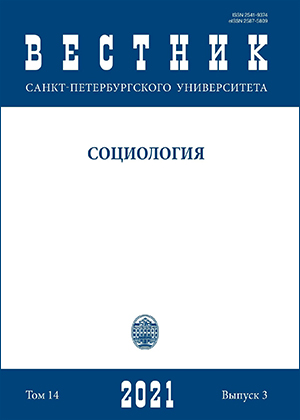Uncertainty about artificial intelligence technology in Russian society
DOI:
https://doi.org/10.21638/spbu12.2021.305Abstract
Artificial intelligence (AI) already affects many areas of society today. On the one hand, it is often associated with fears around dystopian surveillance, total workplace automation, and other dangers. On the other hand, the notions that AI actively stimulates innovation and acts as a powerful tool for solving various social problems occupy a significant place in discussions. At the same time, the high level of uncertainty in relation to the latest technologies makes the question of AI’s future especially susceptible to definition and framing by certain influential social groups. In the current article, consideration of the issues of social construction of attitudes on the prospects of AI technology is explained by the relevance of the conflict shown in Russian realities between the population’s concern and ambitious legislative goal setting. Against the background of these poles of skeptical and progressive orientations, the positions of specialized scientists and business are no less interesting. They are forced to find a balance somewhere between these polarities in defending their own interests. The materials presented in the article summarize the results of previous studies, and also rely on the analysis of state documents in the field under study in order to present an overall picture of the development of technology. Based on the results of the study, directions for further deepening the sociological understanding of the processes taking place today in Russia concerning the development and
implementation of artificial intelligence are identified.
Keywords:
artificial intelligence, attitudes to technologies, uncertainty, Russian society
Downloads
References
References
Downloads
Published
How to Cite
Issue
Section
License
Articles of "Vestnik of Saint Petersburg University. Sociology" are open access distributed under the terms of the License Agreement with Saint Petersburg State University, which permits to the authors unrestricted distribution and self-archiving free of charge.




